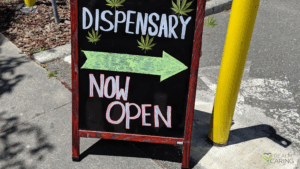
CBD and Brain Health
Why Brain Health Matters More Than Ever Right now, many people are juggling heavier workloads, increased stress, erratic sleep patterns, and information overload. These pressures, which are common in

Why Brain Health Matters More Than Ever Right now, many people are juggling heavier workloads, increased stress, erratic sleep patterns, and information overload. These pressures, which are common in

The holiday season brings connection, comfort, and, let’s be honest, more indulgence than usual. For many of us, this can also mean digestive discomfort, sluggishness, or the familiar “I definitely

By Bonni Goldstein, MD View the featured webinar here Dr. Goldstein’s recent presentation explored the emerging evidence on the role of cannabinoids in managing symptoms associated with Autism Spectrum

October 2025 has delivered three significant events: scientific validation of cannabis’s role in pain care, a major constitutional case bridging cannabis use and firearms law, and a consumer-market milestone with

Background Three nonprofits: Realm of Caring, Unlimited Sciences, and Lily’s Lighthouse, came together with a shared goal: to explore the therapeutic potential of functional mushrooms for people living with

As the Halloween candy aisle looms and sugar consumption spikes, many Americans are becoming increasingly aware of just how detrimental excess sugar can be for our health. What if there

Whether you’re curious about trying cannabis for wellness, relaxation, or curiosity’s sake, your first time shopping for cannabis can feel both exciting and overwhelming. From reading labels to understanding THC

Menopause is a natural transition that most women experience between the ages of 45 and 55. It occurs 12 months after cessation of a woman’s final menstrual cycle; following this

Many clients come to Realm of Caring looking for help in improving their quality of sleep. The great news is that research is continuing to show us that cannabinoid therapy

Sexual Health Awareness Month and Libido Sexual Health Awareness Month is a time to highlight how intimacy and desire contribute to overall wellbeing. Libido, the natural drive for sex,
Open the following in new tabs if you:
If you are already a user: Client Login
If you are not, then register: Client Registration
Once Logged in, click below to refresh the page.